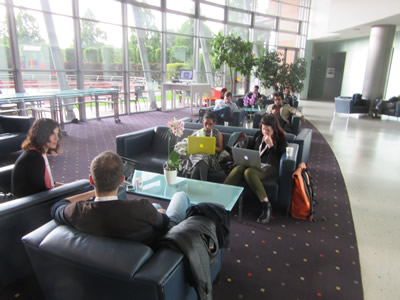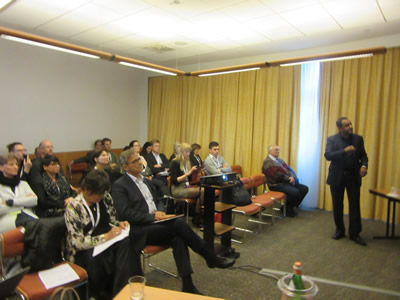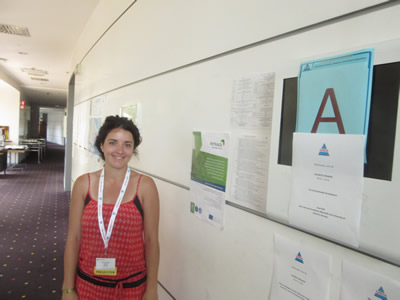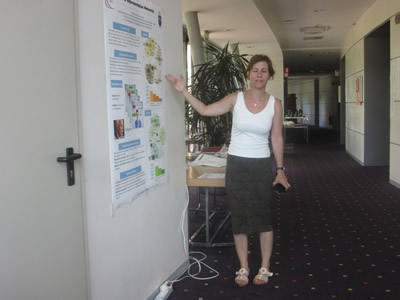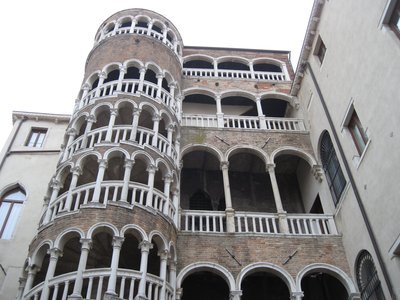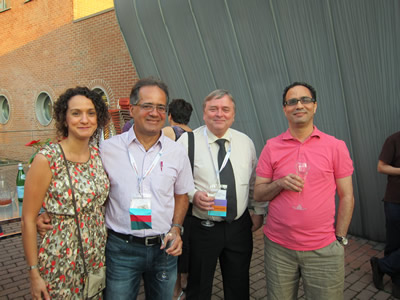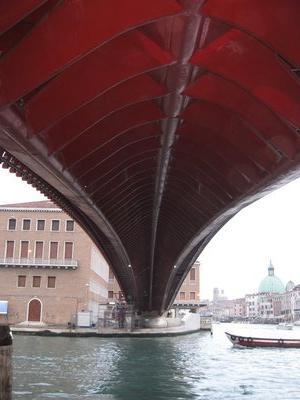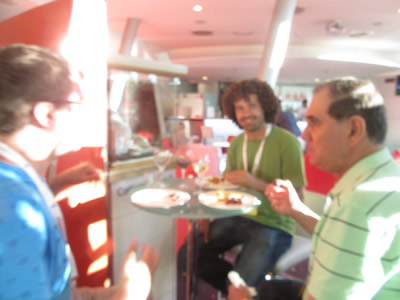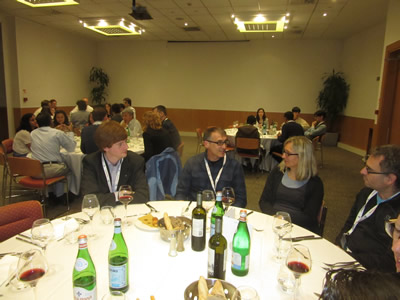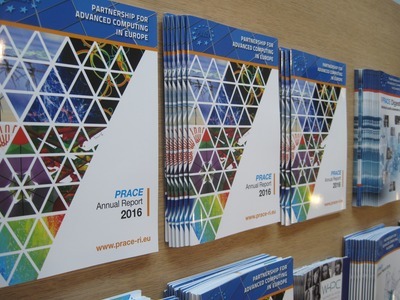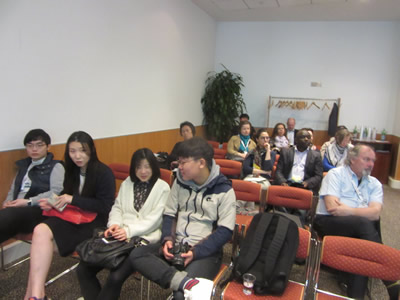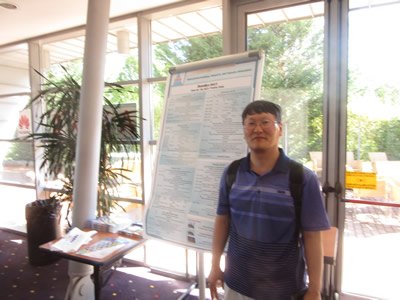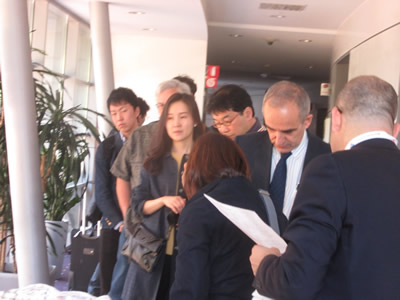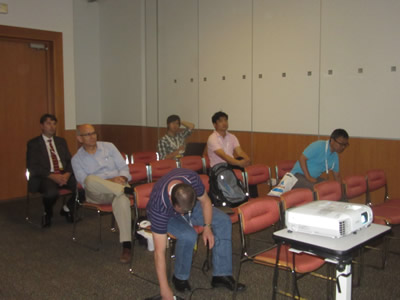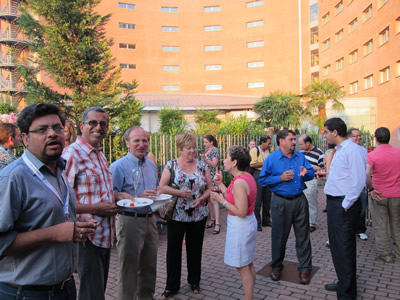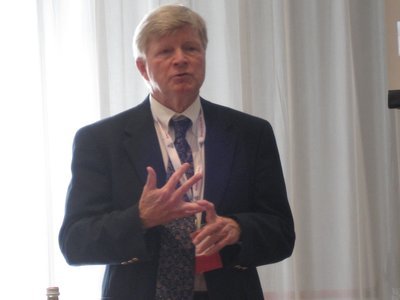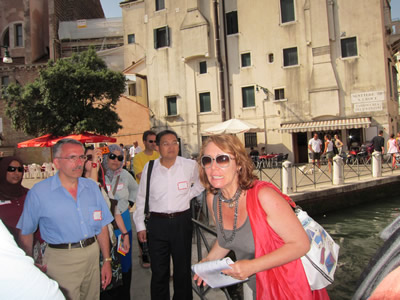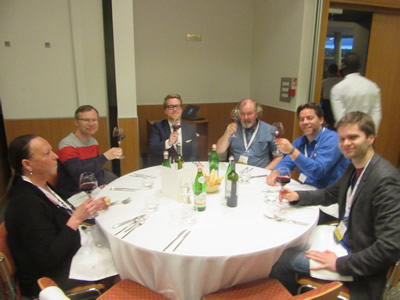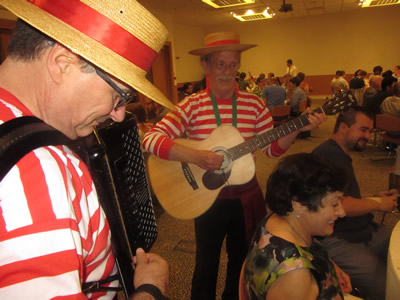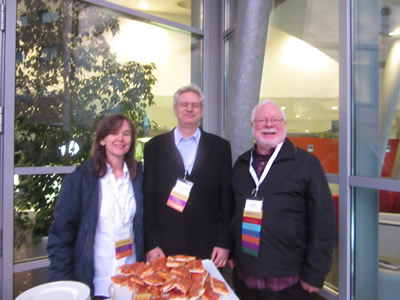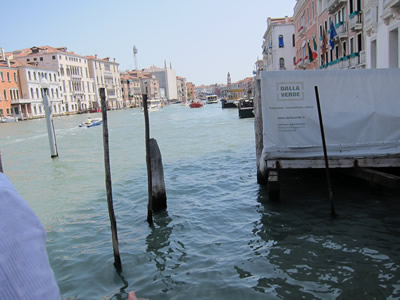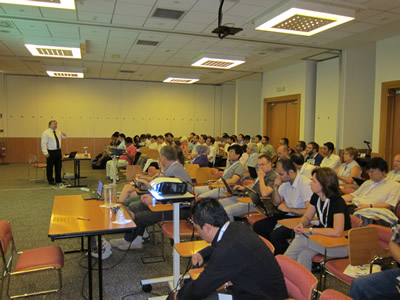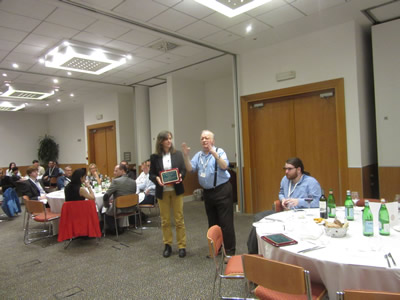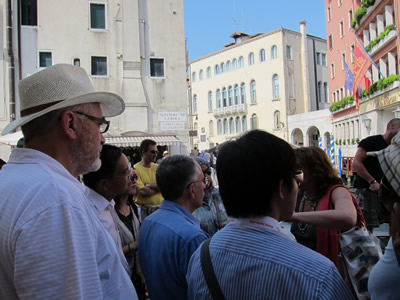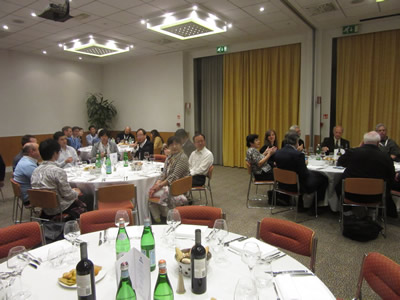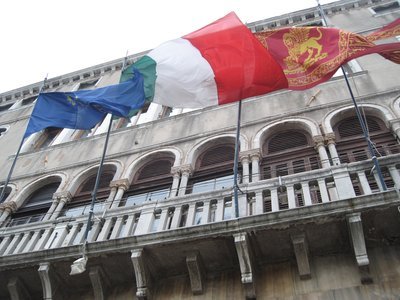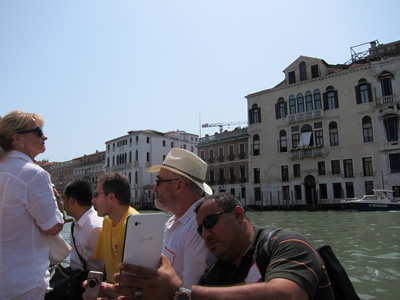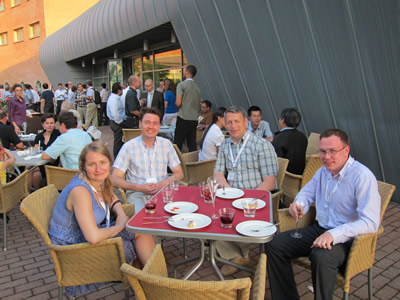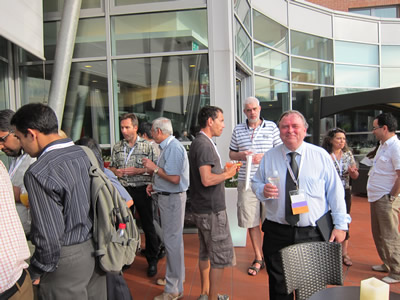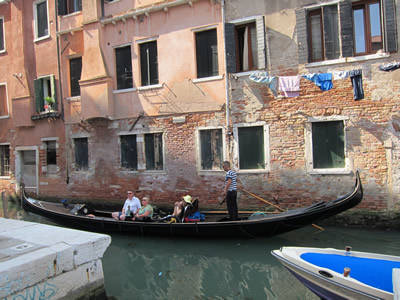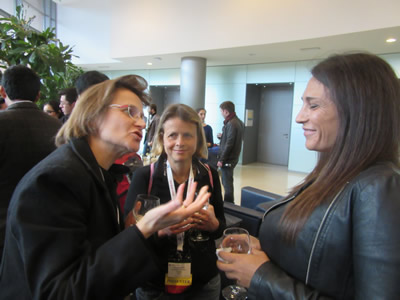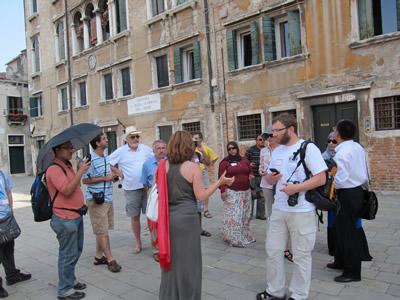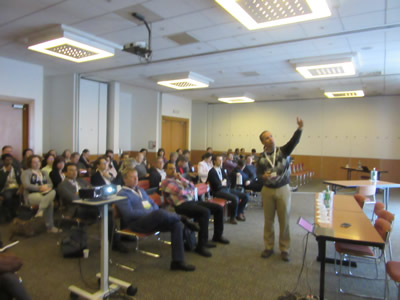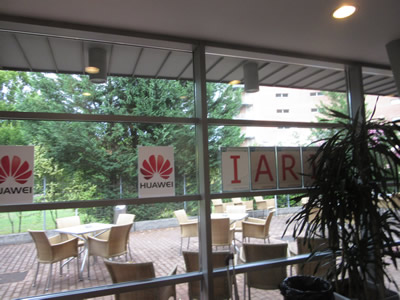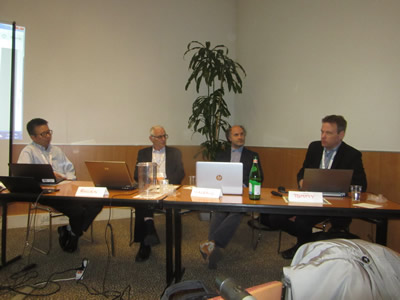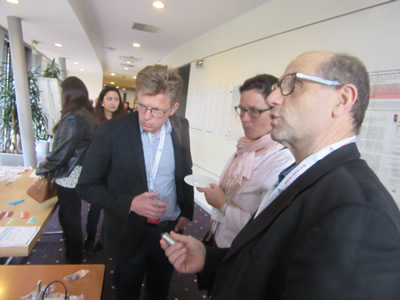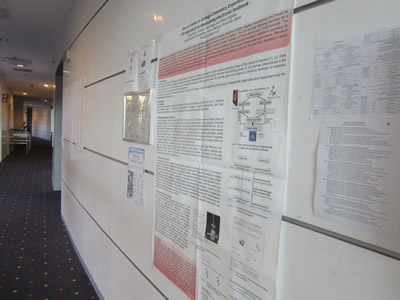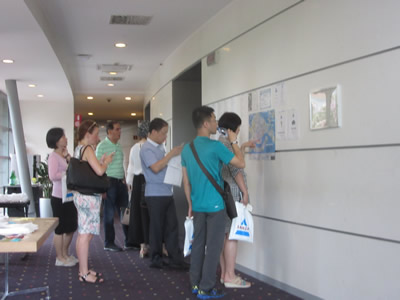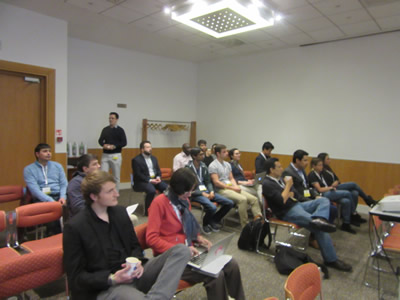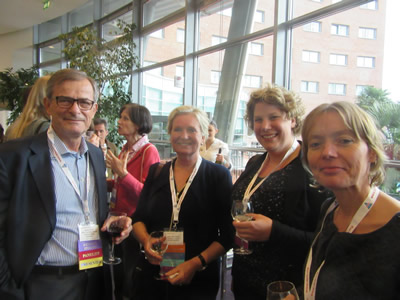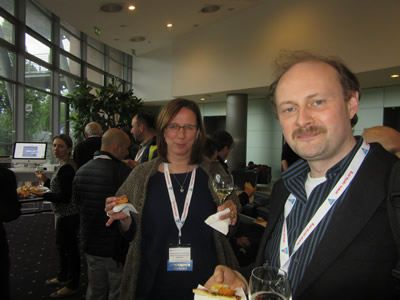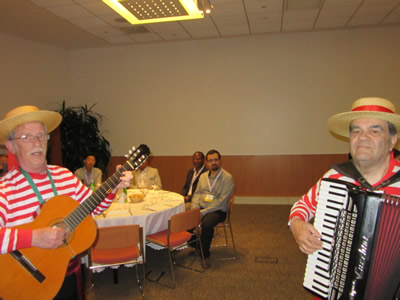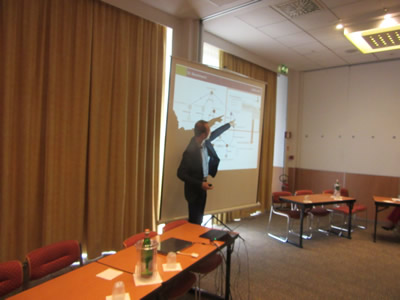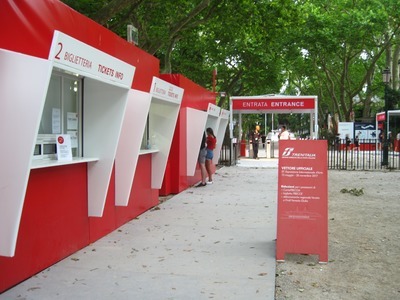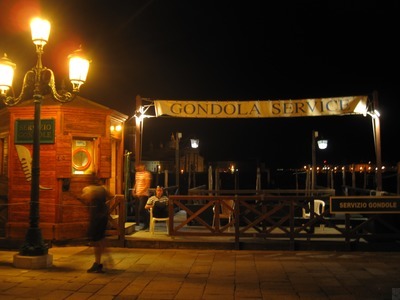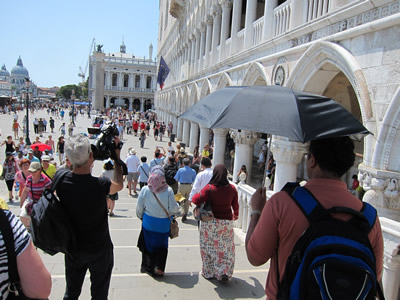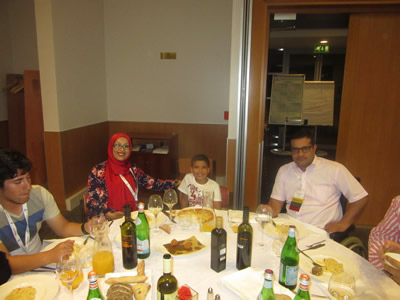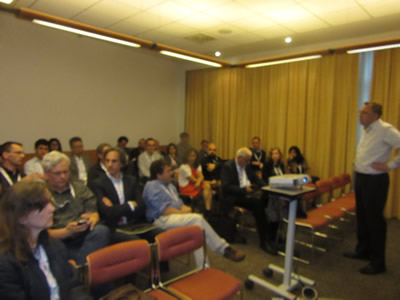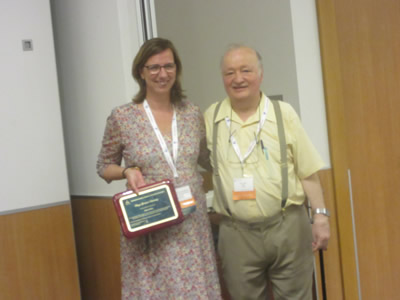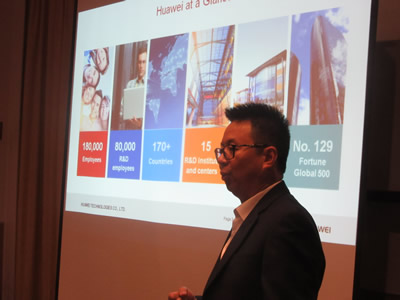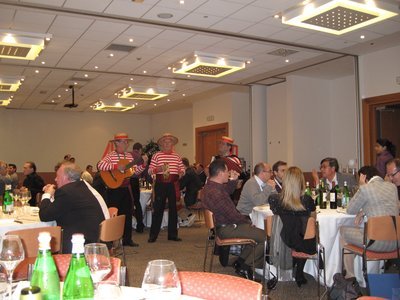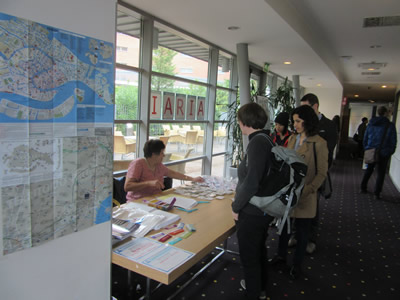COLLA 2018 - The Eighth International Conference on Advanced Collaborative Networks, Systems and Applications
June 24, 2018 - June 28, 2018
COLLA 2018: Call for Papers
Collaborative systems have raised to become an inherent part of our lives, supported by global infrastructures, technological advancements and growing needs for coordination and cooperation. While organizations and individuals relied on collaboration for decades, the advent of new technologies (e.g. from wikis to real-time collaboration, groupware to social computing, , service-oriented architecture to distributed collaboration) for inter- and intra- organization collaboration enabled an environment for advanced collaboration.
As a consequence, new developments are expected from current networking and interacting technologies (protocols, interfaces, services, tools) to support the design and deployment of scalable collaborative environments. Current trends include innovations in distributed collaboration, collaborative robots, autonomous systems, online communities or real-time collaboration protocols.
COLLA 2018 aims to gather an interdisciplinary spectrum of researchers around collaboration technologies. It has high quality contributions (~30% acceptance rate) and wide dissemination of its results due to its Open Access nature, complemented with special issues to reputable journals. COLLA continues a series of events dedicated to advanced collaborative networks, systems and applications, focusing on new mechanisms, infrastructures, services, tools and benchmarks.
We solicit both academic, research, and industrial contributions. We welcome technical papers presenting research and practical results, position papers addressing the pros and cons of specific proposals, such as those being discussed in the standard fora or in industry consortia, survey papers addressing the key problems and solutions on any of the above topics short papers on work in progress, and panel proposals.
Industrial presentations are not subject to the format and content constraints of regular submissions. We expect short and long presentations that express industrial position and status.
Tutorials on specific related topics and panels on challenging areas are encouraged.
The topics suggested by the conference can be discussed in term of concepts, state of the art, research, standards, implementations, running experiments, applications, and industrial case studies. Authors are invited to submit complete unpublished papers, which are not under review in any other conference or journal in the following, but not limited to, topic areas.
All topics and submission formats are open to both research and industry contributions.
COLLA 2018 conference tracks:
Hot topics on collaborative systems
Computer-drive design interaction; Model-driven GUI generation; Uncertain collaborative environments; Collaborative knowledge creation; Community-based participatory research; Emergency response user interfaces; Multimodal and multidevice user interfaces; Medical device interaction; Predicting cooperation behavior; Sentiment analysis; Quantifying controversy; Cooperative intents; Privacy loss estimation; Online social networks; Community question answering; Social mobility; Twitter discussion groups; Affective computing; Perception models: emotion, rumors, persuasion; Leader-driven open collaboration platforms; Spontaneous emergence of consensus; Mining complaints; Big Data Privacy; Large Data Sets; Administrative models for collaborative management; Sustainable community participation; Collaborative visual analysis; Social-interaction based model; Deep recommendations; Online health communities; Social identities in home physiotherapy; Cooperative wearable technologies; Crowd-based social enterprise; Enterprise crowdfunding; Cooperative counseling; Persuasive impact of emoticons; Online service co-customization; Online product recommendation; Social commerce websites; Trust in e-commerce; Collaborating under constraints; Collaborative filtering-based recommendation; Challenges and opportunities of sharing economy; Online ethics; Ecological communities
Open collaborative research
Open collaboration research; Research via wikis and social media; Open research access; Open sources for collaboration; Open web and public data research; Education for Open research; Scientific trust and legal aspects in open collaboration
Cooperation and collaboration mechanisms
Collaborative computing; Cooperation as interface sharing; Collaboration as knowledge sharing; Ethics and trust in collaborative cross-domains; Cooperative emotion; Planning and managing collaborative applications and projects; Semantic and ontology challenges in collaborative environments; Cooperation and collaboration pitfalls; Groupware supporting single-display collaboration; Sharing data and decisions; Coalitions and negotiations in cooperative environments; Adaptive collaboration; Integrating cross-organizational applications; Cooperative data extraction and data integration; Secure collaboration; Dynamic cooperative environments; Visualization of cooperative processes
Collaborative architectures and mechanisms
Fundamental theoretical aspects of distributed collaboration; Methodologies and tools for design and analysis of collaborative user applications; Frameworks for human-centric based group collaboration; Distributed collaborative workflows; Architectures, protocols, and technologies for collaborative networks and systems; Collaboration and negotiation protocols; Quality of collaboration in collaborative networks, systems, and applications; Modeling for collaboration; Cloud-based collaboration; Agent-based collaborative environments; Collaboration techniques in resource intensive environments; Security, privacy and trust in collaborative networks, systems, and applications
Collaborative applications
Collaboration in pervasive computing applications; Collaborative e-education, e-learning, and collaborative computing in digital libraries; Models and mechanisms for real-time collaborative applications; Distributed technologies for group collaboration; Collaborative games; Web-based communities; New data distribution models to facilitate group collaboration; Social computing and inter-cultural collaboration;
Collaborative infrastructures
Collaborative, context-aware infrastructure; Collaborative mobile networks and infrastructures; Collaborative, location-aware mobile systems/applications; Collaborative sensor networks, unmanned air and ground vehicle networks and applications; ; Peer-to-peer and overlay networks, systems, and applications;
Collaborative services
Collaborative technologies for fast creation and deployment of new mobile services; Web services technologies and collaboration; Service-oriented architectures for collaborative networking and applications; Trusted collaborative services; Collaborative entertainment systems and services; Computer supported cooperative design; Adaptive content distribution; Semantic and ontology challenges in collaborative environments
Collaborative users
Human/robot collaboration; Collaborative social networks and web-based collaboration; Computer supported collaborative work with distributed systems; Human-centric ubiquitous collaboration; Social networks and community discovery; Markets, auctions, exchanges, and coalitions
Tools and benchmarking
Methodologies and tools for design and analysis of collaborative user applications; Simulation, performance evaluation, experiments, and case studies of collaborative networks and applications; Dedicated hardware and software enabling collaboration; Technologies for creating dynamic social networks; P2P platforms for supporting collaboration; Energy management for collaborative networks; Tools for collaborative decision making processes; Trustworthy collaborative business processing in groupware organizations; Visualization techniques and interaction devices; Visual languages for collaborative networks and applications; Workflow management for collaborative networks/systems
Deadlines:
Submission | Mar 07, 2018 |
Notification | Apr 09, 2018 |
Registration | Apr 23, 2018 |
Camera ready | May 04, 2018 |
Deadlines differ for special tracks. Please consult the conference home page for special tracks Call for Papers (if any).
INSTRUCTION FOR THE AUTHORS
Authors of selected papers will be invited to submit extended versions to one of the IARIA Journals.
Publisher: XPS (Xpert Publishing Services)
Archived: ThinkMindTM Digital Library (free access)
Prints available at Curran Associates, Inc.
How to submit to appropriate indexes.
Only .pdf or .doc files will be accepted for paper submission. All received submissions will be acknowledged via an automated system.
Contribution types
- regular papers [in the proceedings, digital library]
- short papers (work in progress) [in the proceedings, digital library]
- ideas: two pages [in the proceedings, digital library]
- extended abstracts: two pages [in the proceedings, digital library]
- posters: two pages [in the proceedings, digital library]
- posters: slide only [slide-deck posted on www.iaria.org]
- presentations: slide only [slide-deck posted on www.iaria.org]
- demos: two pages [posted on www.iaria.org]
FORMATS
Only .pdf or .doc files will be accepted for paper submission. All received submissions will be acknowledged via an automated system.
Final author manuscripts will be 8.5" x 11", not exceeding 6 pages; max 4 extra pages allowed at additional cost.
Helpful information for paper formatting for MS Word can be found here.
There is a community provided LaTeX template: the CTAN package iaria (with full IARIA formatting rules, including IARIA citation style, but for providing citation style it is tightly bound to pdflatex+biblatex+biber). In addition, there is also iaria-lite (not bound to pdflatex+biblatex+biber, but compatible with any TeX stack; thus, it cannot provide the IARIA citation formattings, but only the titlepage and content-related IARIA formatting rules). Based on the iaria package, there is a minimal working example as Overleaf template. When you are using the LaTeX templates, please still adhere to the additional editorial rules.
Slides-based contributions can use the corporate/university format and style.
Your paper should also comply with the additional editorial rules.
Once you receive the notification of contribution acceptance, you will be provided by the publisher an online author kit with all the steps an author needs to follow to submit the final version. The author kits URL will be included in the letter of acceptance.
We would recommend that you should not use too many extra pages, even if you can afford the extra fees. No more than 2 contributions per event are recommended, as each contribution must be separately registered and paid for. At least one author of each accepted paper must register to ensure that the paper will be included in the conference proceedings and in the digital library, or posted on the www.iaria.org (for slide-based contributions).
CONTRIBUTION TYPE
Regular Papers (up to 6-10 page article -6 pages covered the by regular registration; max 4 extra pages allowed at additional cost- ) (oral presentation)
These contributions could be academic or industrial research, survey, white, implementation-oriented, architecture-oriented, white papers, etc. They will be included in the proceedings, posted in the free-access ThinkMind digital library and sent for indexing. Please submit the contributions following the instructions for the regular submissions using the "Submit a Paper" button and selecting the appropriate contribution type. 12-14 presentation slides are suggested.
Short papers (work in progress) (up to 4 pages long) (oral presentation)
Work-in-progress contributions are welcome. These contributions represent partial achievements of longer-term projects. They could be academic or industrial research, survey, white, implementation-oriented, architecture-oriented, white papers, etc. Please submit the contributions following the instructions for the regular submissions using the "Submit a Paper" button and selecting the contribution type as work in progress. Contributors must follow the conference deadlines, describing early research and novel skeleton ideas in the areas of the conference topics. The work will be published in the conference proceedings, posted in the free-access ThinkMind digital library and sent for indexing. For more details, see the Work in Progress explanation page. 12-14 presentation slides are suggested.
Ideas contributions (2 pages long) (oral presentation)
This category is dedicated to new ideas in their very early stage. Idea contributions are expression of yet to be developed approaches, with pros/cons, not yet consolidated. Ideas contributions are intended for a debate and audience feedback. Please submit the contributions following the instructions for the regular submissions using the "Submit a Paper" button and selecting the contribution type as Idea. Contributors must follow the conference deadlines, describing early research and novel skeleton ideas in the areas of the conference topics. The work will be published in the conference proceedings, posted in the free-access ThinkMind digital library and sent for indexing. For more details, see the Ideas explanation page. 12-14 presentation slides are suggested.
Extended abstracts (2 pages long) (oral presentation)
Extended abstracts summarize a long potential publication with noticeable results. It is intended for sharing yet to be written, or further on intended for a journal publication. Please submit the contributions following the instructions for the regular submissions using the "Submit a Paper" button and selecting the contribution type as Extended abstract. Contributors must follow the conference deadlines, describing early research and novel skeleton ideas in the areas of the conference topics. The work will be published in the conference proceedings, posted in the free-access ThinkMind digital library and sent for indexing. 12-14 presentation slides are suggested.
Posters (paper-based, two pages long) (oral presentation)
Posters are intended for ongoing research projects, concrete realizations, or industrial applications/projects presentations. The poster may be presented during sessions reserved for posters, or mixed with presentation of articles of similar topic. A two-page paper summarizes a presentation intended to be a POSTER. This allows an author to summarize a series of results and expose them via a big number of figures, graphics and tables. Please submit the contributions following the instructions for the regular submissions using the "Submit a Paper" button and selecting the contribution type as Poster Two Pages. Contributors must follow the conference deadlines, describing early research and novel skeleton ideas in the areas of the conference topics. The work will be published in the conference proceedings, posted in the free-access ThinkMind digital library and sent for indexing. 8-10 presentation slides are suggested. Also a big Poster is suitable, used for live discussions with the attendees, in addition to the oral presentation.
Posters (slide-based, only) (oral presentation)
Posters are intended for ongoing research projects, concrete realizations, or industrial applications/projects presentations. The poster may be presented during sessions reserved for posters, or mixed with presentation of articles of similar topic. The slides must have comprehensive comments. This type of contribution only requires a 8-10 slide-deck. Please submit the contributions following the instructions for the regular submissions using the "Submit a Paper" button and selecting the contribution type as Poster (slide-only). The slide-deck will be posted, post-event, on www.iaria.org.
8-10 presentation slides are suggested. Also a big Poster is suitable, used for live discussions with the attendees, additionally to the oral presentation.
Presentations (slide-based, only) (oral presentation)
These contributions represent technical marketing/industrial/business/positioning presentations. This type of contribution only requires a 12-14 slide-deck. Please submit the contributions following the submission instructions by using the "Submit a Paper" button and selecting the contribution type as Presentation (slide-only). The slide-deck will be posted, post-event, on www.iaria.org.
12-14 presentation slides are suggested.
Demos (two pages) [posted on www.iaria.org]
Demos represent special contributions where a tool, an implementation of an application, or a freshly implemented system is presented in its alfa/beta version. It might also be intended for thsoe new application to gather the attendee opinion. A two-page summary for a demo is intended to be. It would be scheduled in special time spots, to ensure a maximum attendance from the participants. Please submit the contributions following the submission instructions by using the "Submit a Paper" button and selecting the contribution type as Demos. The Demos paper will be posted, post-event, on www.iaria.org.
Tutorial proposals
Tutorials provide overviews of current high interest topics. Proposals should be for 2-3 hour long. Proposals must contain the title, the summary of the content, and the biography of the presenter(s). The tutorial slide decks will be posted on the IARIA site.
Please send your proposals to tutorial proposal
Panel proposals
The organizers encourage scientists and industry leaders to organize dedicated panels dealing with controversial and challenging topics and paradigms. Panel moderators are asked to identify their guests and manage that their appropriate talk supports timely reach our deadlines. Moderators must specifically submit an official proposal, indicating their background, panelist names, their affiliation, the topic of the panel, as well as short biographies. The panel slide deck will be posted on the IARIA site.
Please send your proposals to panel proposal


